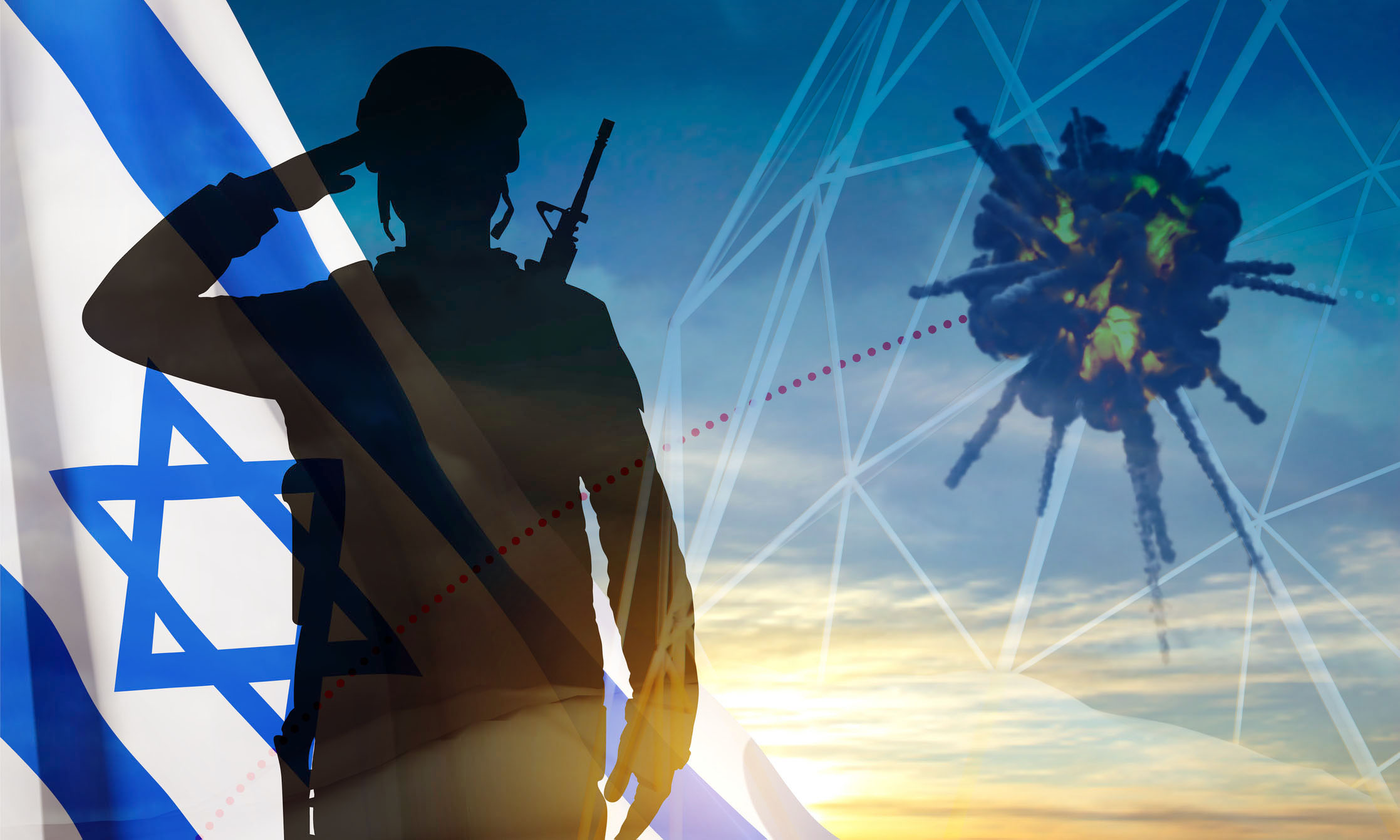 Naeblys/Getty Images; e-crow/Getty Images
Naeblys/Getty Images; e-crow/Getty Images The Hamas invasion and massacre of Jews on Oct. 7 shattered us because it brought back traumatic memories of defenseless Jews. This was not an assault on an army; it was an assault on helpless civilians who depended on that army to protect them. It was impossible not to think back to earlier times in Jewish history when Jews were indeed helpless, when there was no army to protect them.
The victims of Oct. 7, regardless of the aggressive response that followed, brought back disturbing memories of the Old Jew.
Six months later, on April 13, the images of hundreds of drones and cruise missiles being intercepted to protect Israeli civilians have instantly reconnected us with the New Jew.
The contrast cannot be sharper. Oct. 7 was a barbaric, low-tech invasion that relied on bulldozers crashing through fences and savages murdering, raping and mutilating Jews. The Israeli response on that day, which includes hundreds of brave Israelis coming to the rescue of their compatriots, was by necessity equally low-tech.
Compared to Oct. 7, April 13 was a high-tech extravaganza. It represented the incredible success of Israel’s strategy of investing in missile defense systems that ended up neutralizing, with the help of the U.S. and other allies, 99 percent of the more than 300 munitions Iran launched against the Jewish state.
Those munitions could have killed thousands of Israelis; they killed none. They were no match for the New Jew, the Jew of Start-Up Nation, the Jew of constant innovation who has the power to change the world.
That New Jew was caught napping on Oct. 7.
The miracle of technology has a way of dulling the senses. We assume it can do virtually anything. The very idea of the Iron Dome feels like science fiction: Developing a bullet that can hit another bullet at maximum speed? That sounds impossible.
The tens of thousands of missiles that have been intercepted in recent years to save countless Israeli lives, culminating in the latest Saturday Night Miracle, have redefined the impossible.
The tragic irony is that stopping terrorists from breaching a border to enter Jewish homes was hardly seen as an “impossible” task– just the opposite. Through a mix of low-tech and high-tech, Israel had become formidable at protecting its borders and its people.
If it managed to do the impossible on April 13, it failed monumentally to do the exceedingly possible on Oct. 7.
The key advantage of military success is that it gives you options. Had the missiles of April 13 gotten through and killed hundreds if not thousands of Israelis, Israel would have no options today. It would have been forced to launch a major attack on Iranian soil, and we’d be talking today about a possible regional war.
The failure of Oct. 7, which resulted in the murder of 1200 Israelis, left Israel with no choice. It had to launch a major war to regain its military deterrence, a justified war that is still far from being won.
We often forget that had Israel defended its Gaza border on Oct. 7 the way it knows how, there would have been no war in Gaza. For those who argue that “we had to go in there sooner or later,” I just hope that the result will be victory and the regaining of deterrence. At the moment, we’re not close to that outcome.
In any case, the point is that strong defense gives you options. When you don’t suffer casualties or keep them low, there’s no need to rush or panic. You can keep your enemy guessing. You can analyze the strategic options before deciding on payback. Right now, it is Iran that is on the defensive and is isolated internationally. It even looks surprisingly weak. Indeed, one way of looking at April 13 is that the big bad Persian bear finally showed its teeth and was humiliated by the Zionist enemy.
They couldn’t even kill one Jew!
Think about that: A ragtag bunch of terrorists killed 1200 Jews, and the world’s biggest sponsor of terror, the regime aiming to destroy Israel and dominate the whole region, failed to take down one Israeli when it finally decided to attack.
In a region where honor is everything, one cannot underestimate the emotional resonance of such failure.
Of course, it’d be equally foolish to underestimate the danger of Iran’s high-tech weaponry, which might, for example, take down crucial infrastructure like electrical grids, not to mention the obvious threat of nuclear weapons. Deterring Iran must and will remain a top priority, at a time and in a manner of Israel’s choosing.
The hard lesson of Oct. 7 is that Israel can never take anything for granted, high-tech or no-tech. The complacence and hubris that led to that day’s massacre are luxuries the state cannot afford if it wants to survive.
The success of Israel since its birth in 1948 is that it inherited the keen sense of danger from the Old Jew and married it to the military prowess of the New Jew.
The lesson of the past six months is that we need both.























 More news and opinions than at a Shabbat dinner, right in your inbox.
More news and opinions than at a Shabbat dinner, right in your inbox.